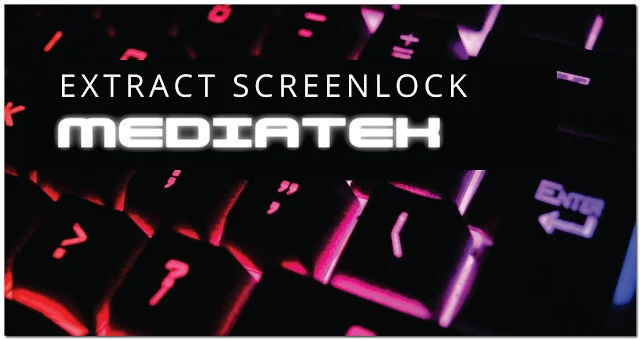Welcome to GSM Software Hub. The MTK Screenlock Tool is especially useful for technicians and users who need to bypass screen locks, such as PIN, password, pattern, and fingerprint locks, on various smartphones and tablets. The latest update of the MTK Screenlock Tool comes with enhanced features and functionalities, making it easier and more efficient to unlock screen locks on MTK devices.

What is the MTK Screenlock Tool?
The MTK Screenlock Tool is a software utility specifically designed for MediaTek (MTK) chipset devices. MediaTek is a popular chipset manufacturer widely used in many smartphones, especially in budget and mid-range devices. The tool provides solutions to bypass or remove various types of screen locks, enabling access to locked devices without the need for a factory reset or loss of data. It is a valuable tool for technicians, mobile repair shops, and even end-users who are locked out of their devices.
Requirements
Before starting the process, ensure that you have the following software and files:
- Pandora or CM2 Software: These tools are required for reading dumps from MTK devices.
- Device Dump: A full dump of the device’s data is needed for key extraction.
- Oxygen Software: This is used to extract hardware keys and generate the project folder for parsing.
Read Dump from the Device
The first step involves reading the data dump from the MTK device. Depending on the software you are using—either Pandora or CM2—the steps vary slightly:
- Open Pandora software and navigate to the "Read Region" option.
- Follow the on-screen instructions to connect your MTK device and read the necessary region.
- Open CM2 software and use the "rawtoo" function to read the required data from the device.
- Follow the instructions to complete the data dump process.
After completing the dump process, rename the dump file to userdata.bin. This will be used in the subsequent steps for extracting hardware keys.
Extract Hardware Keys Using Oxygen
With the userdata.bin file ready, the next step is to use Oxygen software to extract the hardware keys from the MTK device. Here’s how you can do it:
- Open Oxygen Software: Launch the Oxygen tool on your computer.
- Navigate to the Extractor: Go to the extractor section within Oxygen.
- Select "MTK Android" > "Extract Hardware Keys": Choose the appropriate options for MTK Android devices to extract hardware keys.
- Follow the Prompts: You may need to connect and reconnect your device in MTK mode as prompted by Oxygen.
Once the extraction process is complete, Oxygen will extract the following keys:
MTK_HRIDMTK_SOCIDMTK_FDEKEYMTK_RPMB2KEYMTK_CHIDMTK_ITRUSTEEMTK_ME_TDMTK_RIDMTK_CIDMTK_RPMBKEY
These keys are crucial for decrypting the device's partitions and are stored in a keys.json file generated by Oxygen.
Prepare Files for the Oxygen Project
Now that you have extracted the keys, the next step is to prepare the files necessary for creating a manual Oxygen project:
- Copy
userdata.binto Oxygen: Place theuserdata.binfile in the folder where Oxygen will be working. - Generate a Key Folder: Use Oxygen to generate a folder containing the extracted keys (
keys.json). Ensure that this folder is in the same location as theuserdata.binfile.
Create the device.ewc File
To complete the preparation, you need to create a device.ewc file, which contains metadata required by Oxygen to parse the project correctly:
- Create a New File: Open a text editor like Notepad++ and create a new file named
device.ewc. Insert the Following Code: Copy and paste the following code into the file:
[BaseInfo] ExtractionEndUtc ExtractionMethod- ExtractionStartUtc- [ExtendedInfo] KeyBagFile-keys.json Partition1File-userdata.bin Partition1Name-userdata PartitionsCount-1
- Save the File: Save the
device.ewcfile and place it in the folder whereuserdata.binandkeys.jsonare located.
Final Folder Structure
Ensure that your folder structure is correctly organized for the Oxygen software to parse the project. The folder should contain the following files:
userdata.binkeys.jsondevice.ewc
Ready for Parsing
With all the necessary files prepared and organized, your Oxygen project is now manually generated and ready for parsing. You can now proceed to use Oxygen software to analyze the MTK device, perform data recovery, or conduct other required operations.
Conclusion
By following this guide, you can effectively extract hardware keys from MTK devices using Pandora or CM2 software and prepare an Oxygen project manually for parsing. This method is invaluable for technicians and forensic analysts who need to access encrypted data or perform deep-level analysis on MTK-based smartphones and tablets. The combination of Pandora, CM2, and Oxygen software provides a comprehensive toolkit for dealing with various MTK devices.

.jpg)
![Carlcare IMEI Write Tool v7.20250106 FREE – Best IMEI Repair Tool for TECNO, itel, Infinix [2025 Update]](https://blogger.googleusercontent.com/img/b/R29vZ2xl/AVvXsEiImufsscgQURpXNzlpieSnolPHHn0Lgz8-UlI9vi_zg9CSm0U0a4vWFXx6VQX_ZdtgnuGkNFvtAKg7JW4q_YVgFREWyj1h_GvFIcM9I5fOlMjuu_4xdMzoZM2sTXJKo0yl0cY47SWdYi89mJsJMWN1VfQl3k4no0dmcCL0mbj7eNygQFCHqHQACrF3TkI/w72-h72-p-k-no-nu/Transsion-Carlcare-IMEI-Write-Tool-V7-2025-20250311002345-1024x539.webp)






0 Comments